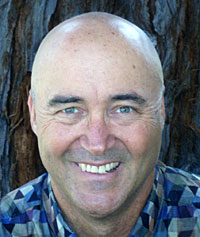 Imagine a type of torture where there is great pain in what seems to be the very center of your skull, when facial tenderness and pain is experienced by simple touch, where eyes ache and feel like they are coming out of their sockets, and where there's pain in the teeth and even a sensation as though the teeth are too long. Many people today feel this type of torture too frequently because these people suffer from chronic sinusitis.
Imagine a type of torture where there is great pain in what seems to be the very center of your skull, when facial tenderness and pain is experienced by simple touch, where eyes ache and feel like they are coming out of their sockets, and where there's pain in the teeth and even a sensation as though the teeth are too long. Many people today feel this type of torture too frequently because these people suffer from chronic sinusitis.
There are eight sinuses, or air-filled cavities, in the skull. These sinuses lie behind the eyes, the nose, and fore head. Each sinus is connected by a nasal passage in order to drain mucus and aid air exchange.
Sinusitis is most often the revenge of a lingering cold or allergy, which can impede proper nasal drainage. This congestion becomes a breeding ground for infection which then causes the lining in the sinuses to become inflamed and swollen. Other problems that can create congestion leading to sinusitis are polyps, a deviated septum, large or inflamed adenoids, an ab scessed or inflamed tooth, or a change in air pressure from flying or swimming.
Sinusitis can create its own revenge too. Unless it is successfully treated, it can sometimes lead to ear infections, bronchitis, or pneumonia.
The conventional medical treatment for chronic sinusitis primarily is antibiotics and surgery, the big guns of the medical arsenal. Expectorants, decongestants, analgesics, antitussives, irrigation, and cortisone nasal sprays can also be used. The fact that about one in seven Americans suffer from chronic sinu sitis suggests that these conventional treatments are not very effective. They are at best palliative, except in a small number of cases of obstructive chronic sinusitis which modern surgery can now correct. These are the relatively rare obstructive cases are usually caused by a deviated septum, a polyp, or a cyst.
Is there an alternative to this "skullduggery?" Absolutely. The Homeopathic Alternative Homeopathy is a natural medical system that utilizes ex tremely small doses of substances from the plant, mineral, or animal kingdom to augment a person's natural defenses. Rather than inhibiting or suppressing symptoms, homeopathic medicines are prescribed for their unique ability to cause, when given in overdose, the similar symptoms that the sick person is experienc ing.
Homeopaths, like modern-day physiologists, recognize that symptoms represent defenses of the body to infection or stress. Therefore, instead of suppressing symptoms with conventional medications, homeopathic remedies are individually prescribed based on their capacity to mimic the symptoms the sick person is experiencing. Ultimately, these natural medicines strengthen the person's own defenses enabling them to regain health more rapid ly.
Homeopathic medicines are considerably safer than conven tional drugs. Although there has not yet been any formal con trolled studies testing the use of homeopathic medicines to treat sinusitis, there is 200 years of successful and safe clinical experience in treating people suffering from this condition. A recent review of 89 double-blind, randomized clinical studies testing homeopathic medicines was published in The Lancet (Sep tember 20, 1997), and it showed that homeopathic medicines were 2.45 times more effective than placebo.